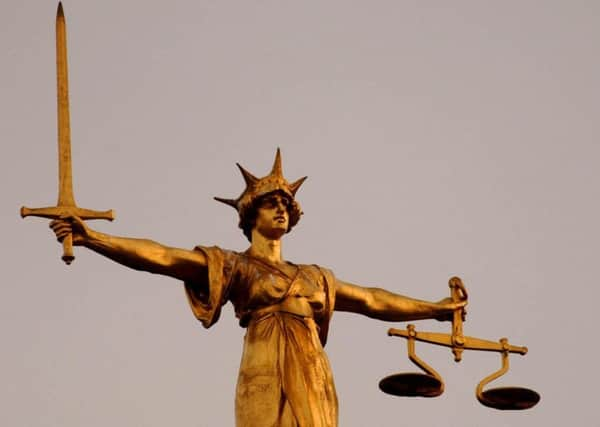Leamington businessman defrauded HMRC


But David Silcock was disqualified from acting as a company director for three years after he was given an 18-month suspended prison sentence.
Silcock, 48, of Whitnash Road, Leamington, whose sentence was suspended for two years by a judge at Warwick Crown Court, was also ordered to pay £1,800 costs.
Advertisement
Hide AdAdvertisement
Hide AdHe had pleaded guilty to six charges of being concerned in the fraudulent evasion of VAT in relation to his company Silky Civils Ltd and one of furnishing a false document to HMRC.
Prosecutor Raj Punia said that as a director of Silky Civils, Silcock submitted false invoices to his accountant for the preparation of VAT returns between November 2011 and April 2013.
They purported to show that sub-contract construction work carried out for Taylor Wimpey Ltd had been zero-rated work, when in fact VAT had been charged and paid at the standard rate for the work.
As a result Silky Civils, which was able to claim refunds for VAT it had paid out on materials for the work rather than paying VAT, defrauded HMRC out of a total of £106,216.
Advertisement
Hide AdAdvertisement
Hide AdA further return would have taken the figure to around £125,000 – but by then suspicions had been raised at HMRC and no repayment was made on that one.
And Miss Punia pointed out that Silcock has actually repaid a total figure of £126,625 which included further sums not covered by the charges.
The final charge related to a disclosure document in which Silcock asserted that tax had been incorrectly calculated, when in fact he had deliberately kept back sales invoices because of cash flow difficulties he was facing.
When Silcock was arrested in December 2013 he accepted his role in various companies, and said his accountants dealt with VAT matters based on information he had given them.
Advertisement
Hide AdAdvertisement
Hide AdHe admitted the majority of work carried out was zero-rated, but that he had charged customers VAT and then changed the invoices to remove the VAT before passing them to the accountants.
And Silcock said that without doing what he did, he would not have been able to keep the company afloat.
Richard Atkins QC, defending, who said Silcock’s other company TCB Holdings has continued and paid its VAT correctly, commented: “He has now put his house in order. He’s been a bad boy, but he’s put it behind him and he is complying.”
He told the judge: “I concede the custody threshold has been crossed. The purpose of my mitigation is to see to persuade you that any sentence of custody can and should be suspended.
Advertisement
Hide AdAdvertisement
Hide Ad“What sets this case apart is the total repayment. This started off as a mistake. Once he realised the mistake but was in difficulty with the business, it became criminal.
“It was at the time of a recession, and the firm had lost money because of bad debts. They employed 30 people, and he resorted to this to keep it afloat, although it did eventually go under.”
After reading a number of references and a pre-sentence report, Recorder David Bartlett commented: “To send a man of this stature of previous good character to prison would be a complete waste of time, although it does have to be marked by a custodial sentence.”
Recorder Bartlett told Silcock: “In each case you failed to disclose output tax paid to you on your invoices and made VAT returns for six successive quarters which sought repayments from HMRC when in fact you should have been paying them.
Advertisement
Hide AdAdvertisement
Hide Ad“There was then falsification of a Notification of Errors form saying they were down to miscalculation, when in fact they were done to deliberately falsify the position.
“The total loss to the Revenue by your illegal actions was £106,216 – and if the final one had been paid it would have been £125,388.
“In fact you have repaid that figure, and more.
“That is enormously to your credit.
“It is a most unusual feature of this sort of case, and it has driven me to view that I can suspend the sentence.”